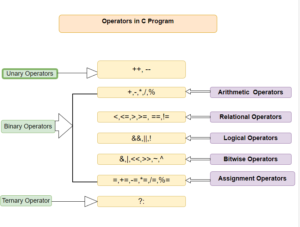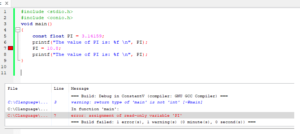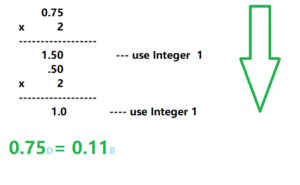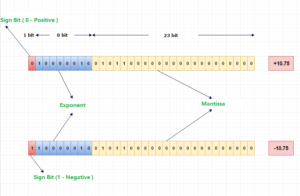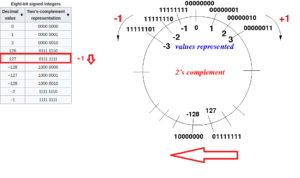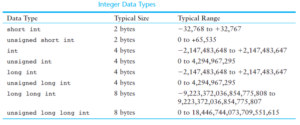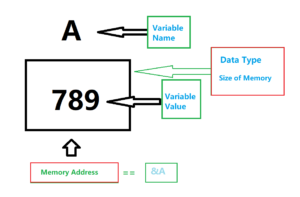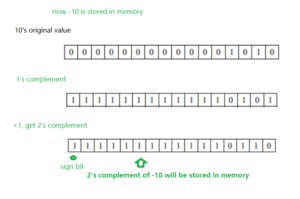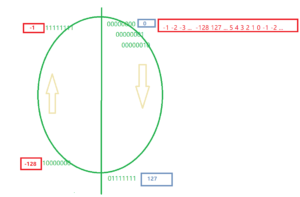During computation, mathematical operations like: addition, subtraction, multiplication, division, etc are converted to bit-level which makes processing faster and saves power. 1. What Are Bitwise…
Logical operators in C are used to perform logical operations on boolean values (true or false). They evaluate the conditions and return a boolean result.…
Relational operators, also known as comparison operators, are used in C programming to establish relationships between values. Similar to mathematical expressions like 10 > 9…
sizeof() is a unary operator in the C language, like other operators such as ++ and –, it is not a function. The sizeof operator…
C Assignment Operators An assignment operator is used for assigning a value to a variable. The most common assignment operator is = Operator Description Example…
Arithmetic Operators An arithmetic operator performs mathematical operations such as addition, subtraction, multiplication, division etc on numerical values (constants and variables). The following table shows…
There are two ways to perform increment or decrement operations on a variable in C: Post-increment: variable++; // Represents incrementing the variable after its current…
1. What is C Programming Operators C language supports a rich set of built-in operators. An operator is a symbol that operates on a value…
1. The Binary Representation of Positive and Negative Numbers 1.1 The binary representation of the positive number 5 : Assuming we have an int type…
1. What is a Constant ? Constants are fixed values that do not change during program execution. These fixed values are also called literals. Using…
Integer data types represent whole numbers without a fractional component, while floating-point data types represent real numbers with a fractional component. Integer data types are…
1. How to Convert the Fractional Part of the Decimal Number to Binary Format Let’s convert the fractional part of the decimal number 0.75 to…
Any numeric value with a decimal point will be interpreted by the compiler as a floating-point number, also known as a real number. 1.Storage of…
1.Integer Introduction The integer type is used to represent large integers and the type declaration uses the “int” keyword. int a; The example above declares…
1. Sign-magnitude Sign-magnitude is a binary fixed-point representation method for numbers in computers. To perform calculations, computers must store numerical values. The simplest way is…
Each data type in a computer is stored in binary form because that is the only language that a computer can understand. Other languages such…
1. Integers In computer programming, an integer is a data type that represents a whole number. For example, 0, -5, 10. This means that an…
1. Memory In C programming, memory is an essential component that is used to store and manipulate data during program execution. Memory in C programming…
Integers are typically stored in memory using a fixed number of bits, depending on the size of the integer. For example, a 32-bit integer can…
1.What is Character Data Type ? In C programming, the character data type is a primitive data type used to store a single character. The…
